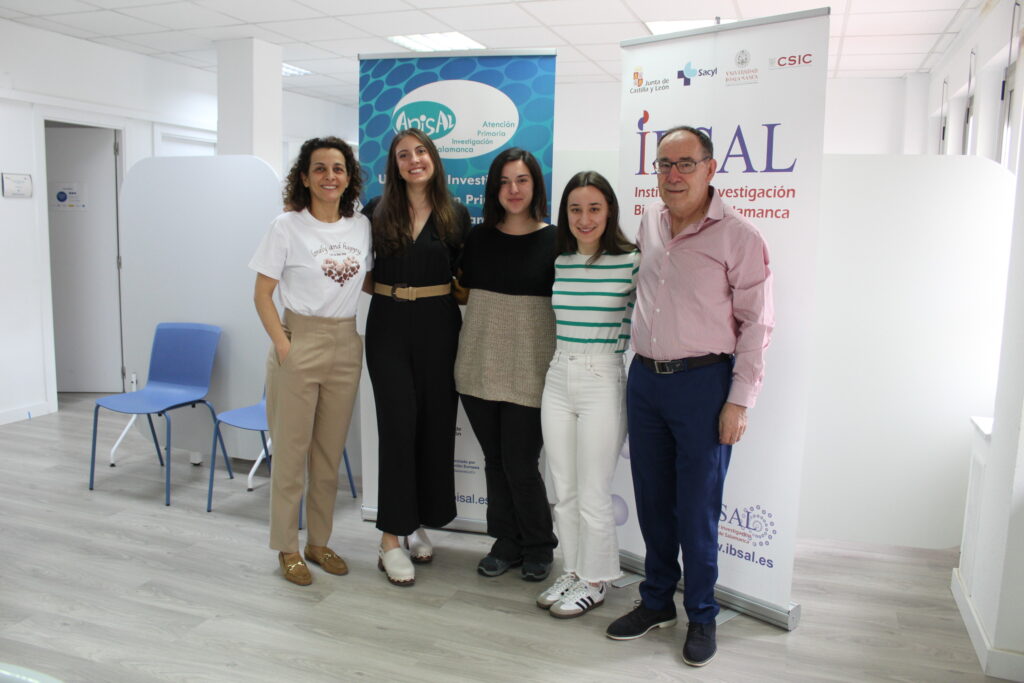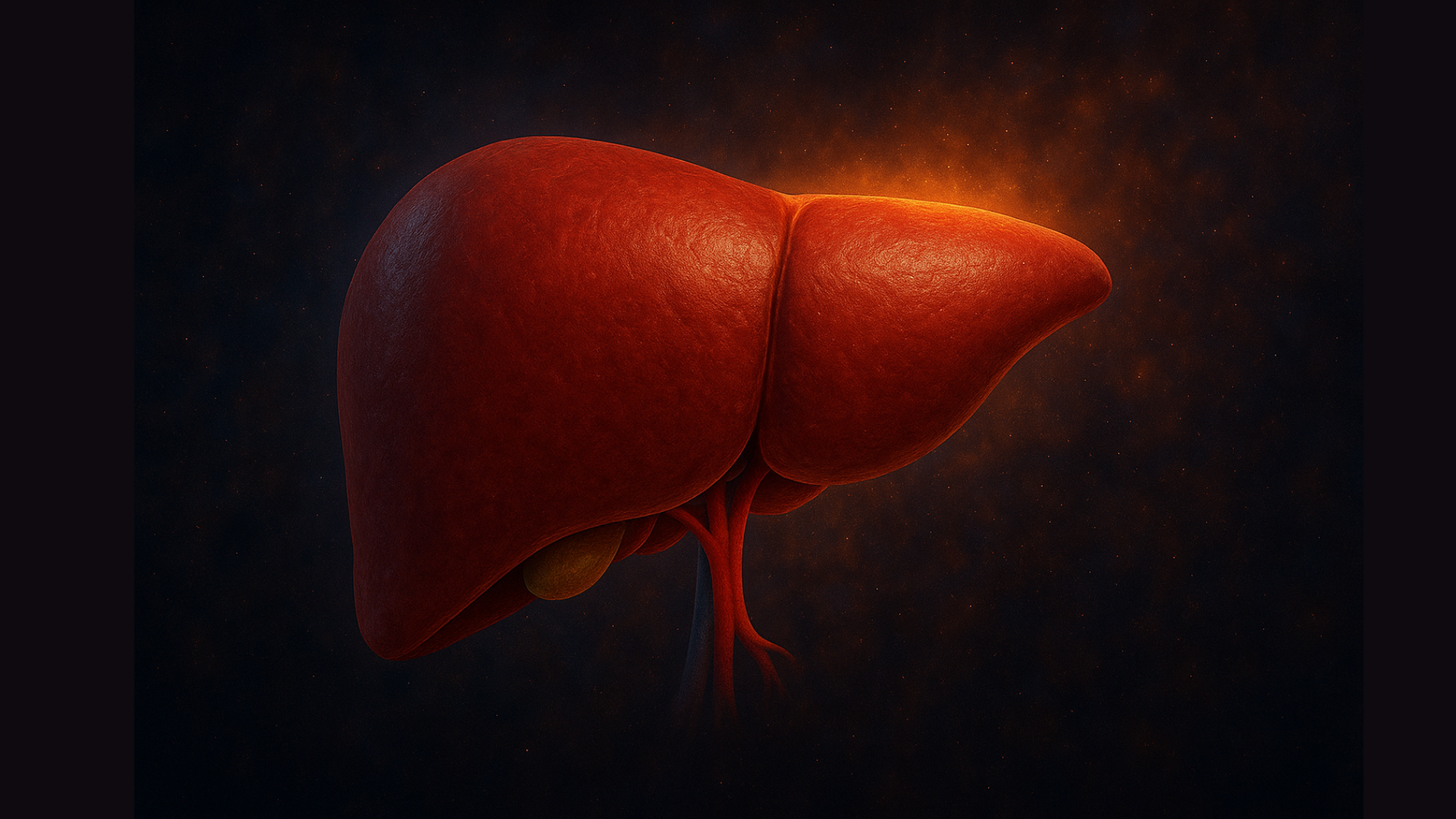The study by the Salamanca Primary Care Research Unit (APISAL) of the IBSAL and the Salamanca Primary Care Management is part of the BioICOPER project which, among other aspects, analyzes changes in lifestyle habits to improve the approach to people with prolonged symptoms after SARS-CoV-2 infection.
Another study reveals that high alcohol consumption in this group worsens vascular structure and arterial stiffness, which increases the likelihood of suffering cardiovascular and cerebrovascular events.
Two studies conducted by the Salamanca Primary Health Care Research Unit (APISAL) , of the Institute of Biomedical Research of Salamanca (IBSAL) and the Primary Care Management of Salamanca, published in the high impact journal Nutrients, open new avenues related to lifestyles for a better approach to patients with persistent covid, a still largely unknown and heterogeneous disease that affects 7-10% of the Spanish population, and therefore represents a major public health challenge.
In the first study, it has been shown that greater adherence to the Mediterranean diet is associated with a lower cardiovascular risk in people with prolonged covid, by detecting lower levels of uric acid, fewer components of the metabolic syndrome, lower waist circumference and higher levels of HDL cholesterol. An association that, as indicated by the principal investigator of the APISAL Cardiovascular Health Promotion group, Dr. Manuel A. Gómez Marcos, “will help us to establish therapies in the future based on lifestyles” that will improve the prognosis of these patients.
The quality of the diet was evaluated using the MEDAS (Mediterranean Diet Adherence Screener) questionnaire of the PREDIMED study, the diet of 305 people diagnosed with persistent covid in Primary Care in Salamanca or in the monographic consultations of Internal Medicine, and at the same time blood pressure, glycemia, triglycerides, cholesterol, body mass index or baseline uric acid levels were analyzed
Adherence to the Mediterranean diet
“We divided patients into three tertiles according to their degree of adherence to the Mediterranean diet and measured their relationship with metabolic syndrome factors and cardiovascular risk, and we actually saw some positive effects in those with greater adherence to this diet, which allows us to try to make an intervention in this area to see if we achieve a clinical improvement,” assures the first author of the article and APISAL researcher, Dr. Nuria Suárez Moreno.
The second article published in Nutrients evaluated the relationship between alcohol consumption, vascular structure and arterial stiffness in adults with persistent covid. Similarly, in this cross-sectional descriptive study in 305 people (97 men and 208 women) three groups were established according to the tertiles of alcoholic beverage consumption and “it was very significant to see that, compared to those who did not drink at all, those with a high intake had worse vascular parameters, and having stiffer and thicker arteries is clearly a risk factor for cardiovascular and cerebrovascular events,” as explained by the first author of the manuscript and also a researcher at APISAL, Silvia Arroyo Romero.
BioICOPER project on persistent covid
Both publications are part of the ambitious BioICOPER project, whose research protocol was also reviewed in the journal Frontiers, and which aims, from a multifactorial approach, to shed some light on persistent covid, in which “there are still many uncertainties, both for patients, who suffer very varied and fluctuating symptoms, and for healthcare professionals, who are faced with an unknown disease at the pathophysiological level about which there are many theories but few certainties”, says Dr. Manuel Gómez Marcos.
Con este objetivo, se ha estado realizando una evaluación integral de los más de 300 pacientes diagnosticados con covid prolongada con diferentes escalas sobre fatiga, sueño, disnea, calidad de vida, atención, estado nutricional y fragilidad, así como sus estilos de vida (dieta, actividad física, hábito tabáquico y consumo de alcohol), factores psicológicos y deterioro cognitivo. Igualmente se han tomado medidas sobre el riesgo cardiovascular, la composición corporal, el envejecimiento vascular e incluso la presencia de retinal vascular damage. In addition, to try to clarify the pathophysiology of the disease, beyond the endothelial injury caused by SARS-Cov-2 infection and which mediates the inflammatory and thrombotic cascade, work is being done with the Biomedical Research Group in Respiratory Infection (BioSepsis) of the IBSAL, led by Dr. Jesús Bermejo, to find specific biomarkers behind persistent covid; or with the Functional Proteomics and Nanomedicine group, coordinated by Dr. Manuel Fuentes, also at the IBSAL, which has a platform for the massive and simultaneous analysis of proteins to study which may be altered in these patients.
“The key to the research is to try to clarify the systems or organs affected in patients with persistent covid, because in the basic tests we did not find any abnormality, but the reality is that people who suffer from it show a large number of symptoms such as fatigue, dyspnea, mental confusion…. In this study we are not only evaluating the clinical manifestations, patterns or lifestyle habits, we are going to analyze the cells in search of biomarkers that will finally give us a key to improving treatments for a disease in which more than 200 symptoms have been described,” he concludes, Dr. Elena Navarro Matias, APISAL researcher and responsible in Primary Care Management throughout the acute phase of the covid-19 pandemic.
The team signing these studies belongs to the Primary Care Research Unit of Salamanca (APISAL) of the IBSAL; the Department of Medicine and the Department of Biomedical and Diagnostic Sciences of the University of Salamanca; the Health Service of Castilla y León, SACYL; the Emergency Department of the Hospital Universitario de La Paz in Madrid; the Research Network on Chronicity, Primary Care and Health Promotion (RICAPPS); and the Home Hospitalization Service of the Hospital Universitario Marqués de Valdecilla in Santander.

From left to right: Elena Navarro Matías, Andrea Domínguez Martín, Nuria Suárez Moreno, Silvia Arroyo Romero and Manuel A. Gómez-Marcos, at the Salamanca Primary Care Research Unit.
Reference articles:
Nuria Suárez Moreno, Leticia Gómez Sánchez, Alicia Navarro Cáceres, Silvia Arroyo Romero, Andrea Domínguez Martín, Cristina Lugones Sánchez, Olaya Tamayo Morales, Susana González Sánchez, Ana B. Castro Rivero, Emiliano Rodríguez Sánchez, Luis García Ortiz, Elena Navarro Matías, Manuel A. Gómez Marcos. Association of Mediterranean Diet with Cardiovascular Risk Factors and with Metabolic Syndrome in Subjects with Long COVID: BioICOPER Study. Nutrients 2025; 17(4): 656. https://doi.org/10.3390/nu17040656
Silvia Arroyo Romero, Leticia Gómez Sánchez, Nuria Suárez Moreno, Alicia Navarro Cáceres, Andrea Domínguez Martín, Cristina Lugones Sánchez, Olaya Tamayo Morales, Susana González Sánchez, Ana B Castro Rivero, Marta Gómez Sánchez, Emiliano Rodríguez Sánchez, Luis García Ortiz, Elena Navarro Matías, Manuel A. Gómez Marcos. Relationship Between Alcohol Consumption and Vascular Structure and Arterial Stiffness in Adults Diagnosed with Persistent COVID: BioICOPER Study . Nutrients. 2025; 17(4): 703. https://doi.org/10.3390/nu17040703
The IBSAL
The Institute of Biomedical Research of Salamanca (IBSAL) was established on March 21, 2011 through an agreement signed by the Ministry of Health of the Regional Government of Castilla y León and the University of Salamanca, which was joined in February 2012 by the Spanish National Research Council (CSIC). It integrates and coordinates the biosanitary research carried out at the University Hospital of Salamanca, the Primary Care Management of Salamanca and the biosanitary area of the University of Salamanca, including the Institute of Neurosciences of Castilla y León, the Institute of Molecular and Cellular Biology of Cancer and the Institute of Functional Biology and Genomics.
Its scientific activity is structured in six areas, with a total of 85 research groups: Cancer (23 groups); Cardiovascular, Renal and Respiratory (11); Neurosciences (12); Infectious, Inflammatory and Metabolic Diseases (19); Gene and Cell Therapy and Transplants (6) and Primary Care, Public Health and Pharmacology (14).
More information and contact:
comunicacion@ibsal.es



